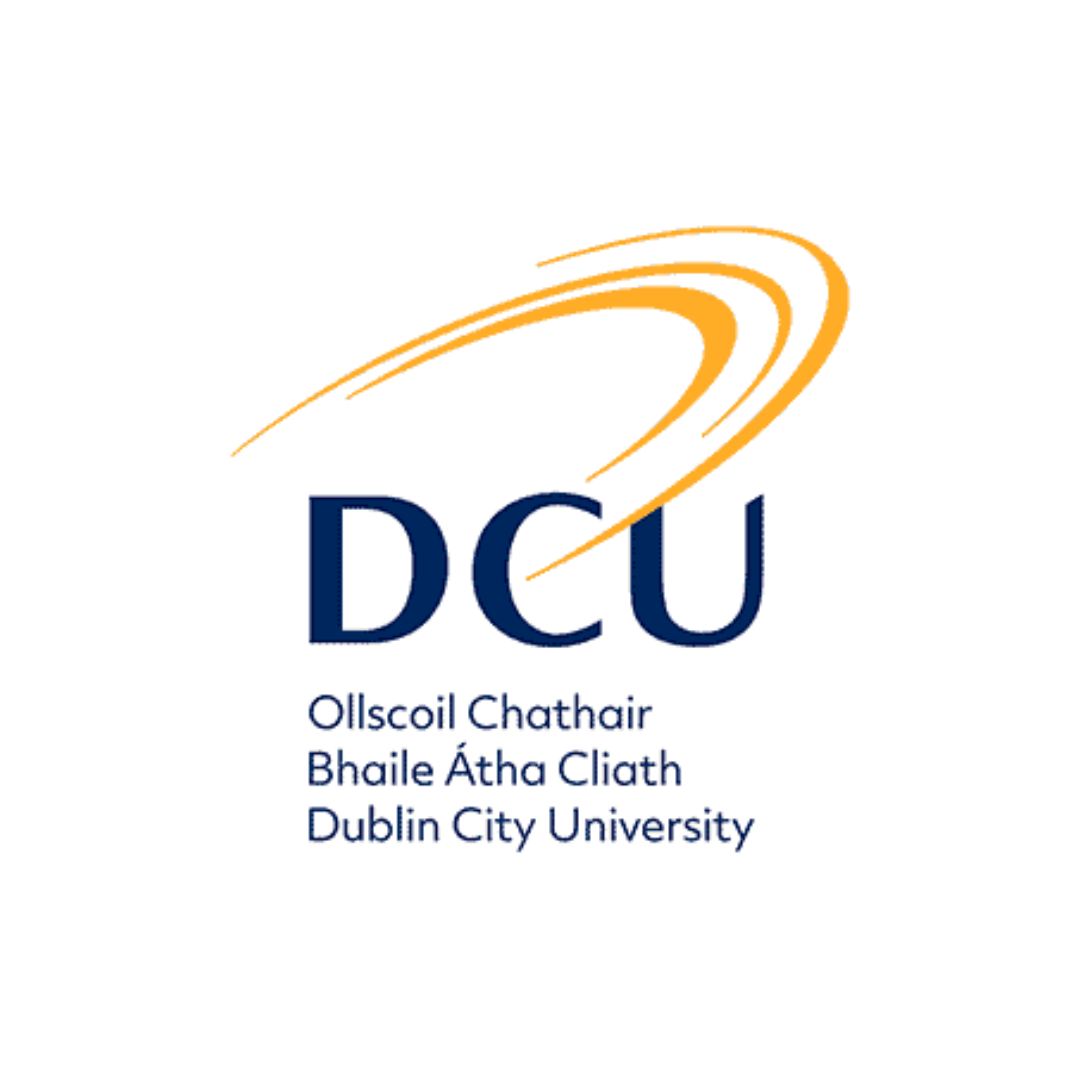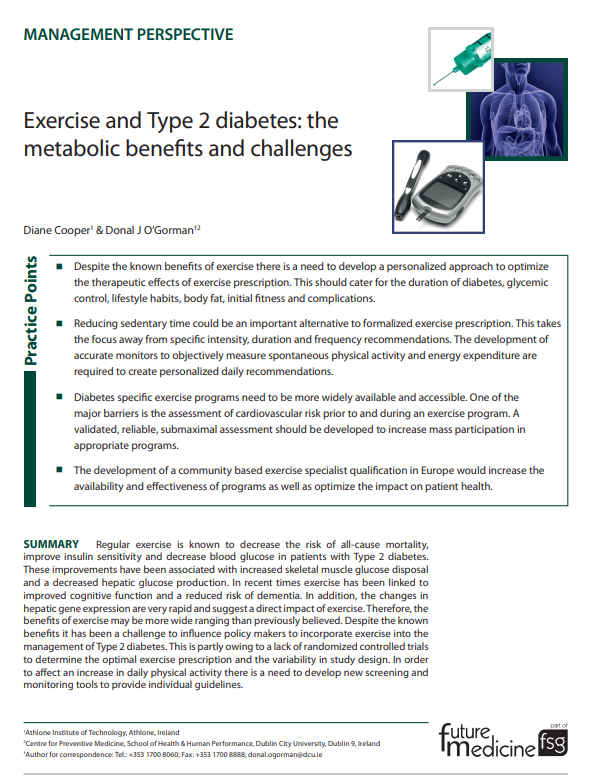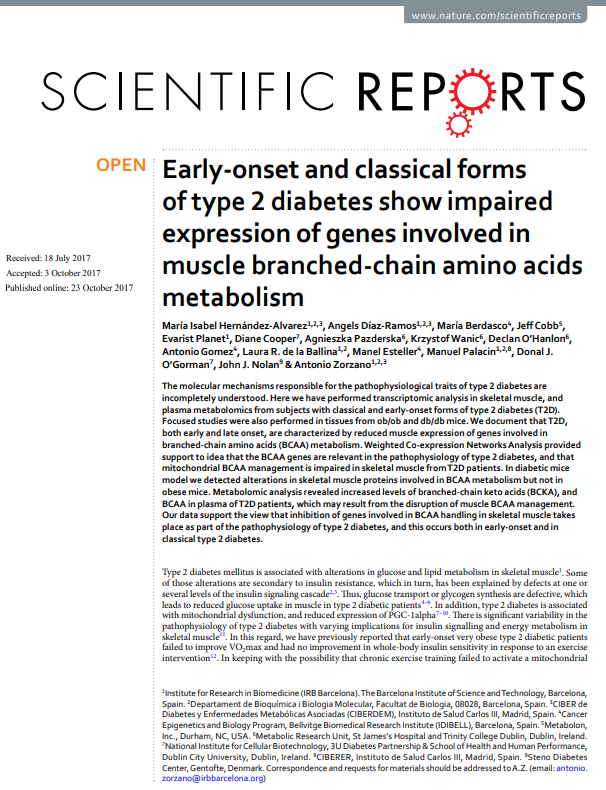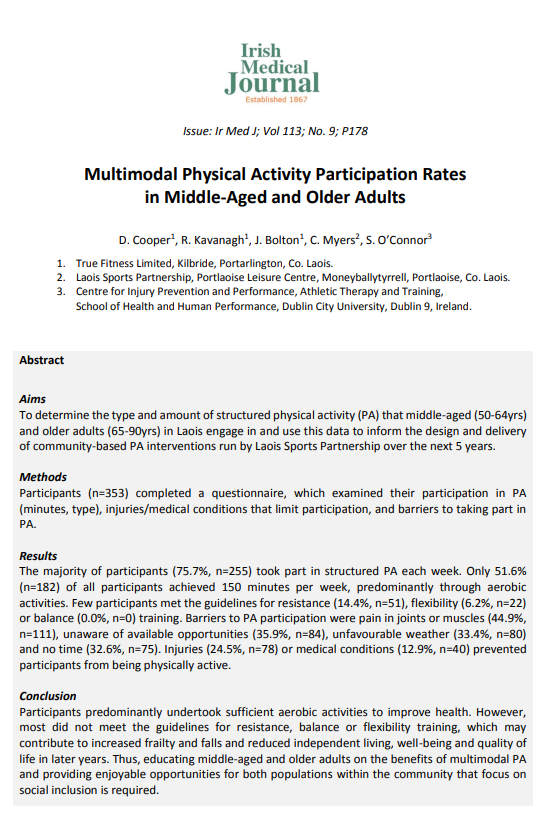
With Dublin City University

Download
Download
Download
Download
Download
Download
With Dublin City University
Dr Diane Cooper completed her PhD in Dublin City University (DCU) in 2014 with Dr Donal O’Gorman. There are a number of research papers that have been published and are currently in progress from this work. More recently, we have worked with Dr Siobhán O’Connor to publish three research papers. Please read below for more information.
Dr Diane’s PhD research
Dr Diane Cooper was successful in her application to the Irish Research Council for Science, Engineering and Technology (IRCSET) to fund her PhD work with Dr Donal O’Gorman in DCU.
For the PhD research Diane looked at the impact of different types of diet and exercise interventions on novel biomarkers of insulin resistance in individuals who were overweight and sedentary. At that time the novel biomarkers included FGF21, IL-13, Fetuin-A, Visfatin, Omentin and Chemerin.
Brief overview of study 1: The purpose of this study was to compare the effect of isocaloric diet and exercise interventions on body composition and metabolic health in participants who were sedentary and overweight. Participants were randomly assigned to either a diet (calorie deficit of 2,500kcal per week) or aerobic exercise (energy expenditure of 2,500kcal per week) group for a 12 week intervention. Pre and post tests included VO2max test + ECG, Oral Glucose Tolerance Test (OGTT), muscle biopsy, DEXA, food diaries, anthropometrics. The paper is currently in progress.
Brief overview of study 2: The purpose of this study was to investigate the impact of 12 weeks of concurrent training on energy expenditure and metabolism in participants who were sedentary and overweight. Participants were randomly assigned to concurrent training incorporating aerobic exercise and regular resistance training, or concurrent training incorporating aerobic exercise and eccentric resistance training only. The pre and post tests included VO2max + ECG, DEXA, OGTT, muscle biopsy, resting metabolic rate, MRI, 3 repetition maximum. The paper is currently in progress.
Brief overview of findings: The key findings were that isocaloric diet and exercise interventions lead to similar reductions in body weight, but exercise training may lead to greater improvements in body composition and metabolic health. Importantly, aerobic fitness was the single best predictor of improvements in metabolic health in this population. Resistance training is important for improving lean tissue mass, fat oxidation and resting metabolic rate. The novel biomarkers of insulin resistance are differentially regulated by diet, exercise and different modes of exercise training. Improvements in body composition and fitness drive improvements in insulin sensitivity and the circulating concentration of the biomarkers, and there is a cyclical relationship between the biomarkers and metabolic health. It is important to study the biomarkers for better understanding of metabolic processes but larger scale studies may be required to determine their role. A combination of calorie restriction, aerobic exercise and resistance training will optimise improvements in insulin resistance and body composition in these individuals.
Link to PhD document: The PhD document can be accessed HERE
Published papers:
Cooper, D and O’Gorman, D.J. Exercise and type 2 diabetes: the metabolic benefits and challenges. Diabetes Management Vol. 1, issue 6 pg 575-587, 2011. Paper can be accessed HERE or below.
Hernández-Alvarez, M,I, Díaz-Ramos, A., Berdasco, M, Cobb, J, Planet, E, Cooper, D, Pazderska, A, Wanic, K, O’Hanlon, D, Gomez, A, R. de la Ballina, L, Esteller, M, Palacin, M, O’Gorman, D.J. Nolan, J.J, and Zorzanocorresponding, A. Early-onset and classical forms of type 2 diabetes show impaired expression of genes involved in muscle branched-chain amino acids metabolism. Scientific Reports 7, 13850, 2017. Paper can be accessed HERE or below.
Research with Dr Siobhán O’Connor
Research Study 1
Research title: Multimodal Physical Activity Participation Rates in Middle-Aged and Older Adults.
Research paper: Published in the Irish Medical Journal (1st October 2020).
Overview: 353 adults aged 50-90 years in Laois completed our survey which looked at participation in multimodal (aerobic, resistance, balance and flexibility) training, barriers (social, personal, environmental) to participation, perceived benefits of participation, and physical activity opportunities participants would like to see available. The key findings include only 51.6% (n=182) of participants meet the recommendations for aerobic exercise for health and most participants did not meet the recommendations for resistance (14.4%, n=51), flexibility (6.2%, n=22) or balance training (0%, n=0). This may increase frailty and falls, reduce independent living, well-being and quality of life in later years. The most common barriers to participation in physical activity were pain in joints and muscles (44.9%, n=111), injuries (24.5%, n=78) and clinical conditions (12.9%, n=40). However, it is important to understand that participation in regular multi-modal physical activity can treat and manage many of these issues. This message needs to be communicated to individuals who are affected by these issues and programmes should incorporate support and input from the area of Clinical Exercise Physiology if possible. In terms of mental health participants said physical activity improved their mental health (91.9%, n=217), helps them feel less stressed (90%, n=212), they enjoy it (90.5%, n=217) and they want to take part in more physical activity (77.5%, n=248). Future physical activity programmes for middle aged and older adults must incorporate (i) multi-modal physical activity (aerobic, resistance, flexibility and balance training), (ii) education regarding the amount, type, and specific benefits of multi-modal physical activity for healthy ageing and the treatment and management of injuries and clinical conditions, (iii) effective online options due to COVID-19.
Research Partners: This research was conducted in partnership with Laois Sports Partnership and Dr Siobhan O’Connor in Dublin City University.
Research Study 2
Research title: Prime Time for Middle Aged and Older Adults. A 12 Week Online Multimodal Physical Activity and Health Intervention for Adults Aged 50-80 Years in Laois.
Research paper: This research was published in Physical Activity and Health (September 2021).
Background: Multimodal exercise training can ameliorate the physiological decline associated with ageing. This study aimed to investigate whether 12 weeks of a home-based online multimodal training and health education intervention could improve functional ability and perceptions of physical and mental health in middle-aged and older adults.
Methods: Sixty-one male (N = 18, 59.1 ± 7.0 years) and female (N = 43, 60.9 ± 6.8 years) participants with various clinical conditions completed two 60-minute training sessions per week for 12 weeks delivered online via Zoom. All sessions included aerobic, resistance, balance, and flexibility exercises. One weekly session incorporated 15 minutes of health and fitness education. The pre/post testing sessions were conducted in a local community centre in line with COVID-19 public health guidelines. Paired samples t-tests and the Wilcoxon signed rank tests were utilised to compare scores pre and post intervention.
Results: There were significant improvements in participants 6-minute walk (p < 0.0001), sit-to-stand (p < 0.0001), timed-up-and-go (p < 0.0001), sit-and-reach (p < 0.0001), squat jump (p < 0.0001), core endurance (p < 0.0001), grip strength (right hand p = 0.03, left hand p = 0.04) and balance (right leg p < 0.0001, left leg p = 0.004) tests post intervention. Perceptions of physical (p < 0.0001) and mental (p < 0.0001) health also improved significantly.
Conclusion: Twelve weeks of online multimodal training and health education can significantly improve cardiovascular fitness, strength, power, balance, flexibility, and perceptions of physical health, mental health, and quality of life in middle-aged and older adults. While there are some limitations to online interventions, the benefits are numerous and equal to those reported for onsite interventions and should be considered for wider rollout in this population.
Programme partners: Laois Sports Partnership, Sláintecare, Pobal, Government of Ireland.
Funding acknowledgement: This project received funding from the Government of Ireland Sláintecare Integration Fund under grant agreement number 21.
Research paper 3
Research title: Reflections, Impact and Future Recommendations Following ‘Prime Time of Life’ – an Online 12-week Multimodal Physical Activity and Health Education Programme for Middle Aged and Older Adults in Laois.
Research paper: This research was published in Physical Activity and Health (June 2022).
Background: Multimodal training (MMT) is important for healthy ageing. However, few middle-aged (MAA) and older adults (OA) engage in MMT. This study aimed to (1) explore MAA and OA reflections, impact and future recommendations following ‘Prime Time of Life’ (PTOL) – a 12-week online multimodal physical activity and health education programme; and (2) examine if participants implemented and sustained lifestyle changes during and after the programme.
Methods: A qualitative study was conducted with purposeful sampling to explore the experiences of MAA and OA who completed PTOL. Six semi-structured focus groups and five interviews were conducted using online communication technology, audio-recorded, and transcribed verbatim. Transcripts were analysed using thematic analysis.
Results: Twenty-one male (n = 7,65.9 ± 6.6 years) and female (n = 14,65 ± 7.6 years) participants completed the study. Accessibility, health benefits, suitability, social influence, and accountability were identified as key facilitators. Poor awareness, social influence, accessibility, and poor self-efficacy were perceived as potential barriers. Participants primarily (90.5%, n = 19) made lifestyle changes during the PTOL programme, and 61.9% (n = 13) maintained at least one lifestyle change seven months after completing the programme.
Conclusion: Although lack of social interaction between participants was identified as a barrier, PTOL was a well-accepted method to promote healthy ageing for MAA and OA. Given there was a poor awareness of other MMT programmes and health benefits prior to PTOL there is a need for increased awareness. It is important to MAA and OA that they have convenient access to MMT programmes that are suitable for all fitness and functional abilities and provide technical support.
Programme partners: Laois Sports Partnership, Sláintecare, Pobal, Government of Ireland.
Research paper 4
Research title: ‘MenoWell’: A pilot 6-week novel, online, multimodal exercise and health education programme for women in all stages of menopause living in Laois, Ireland
Research paper: This research was published in Physical Activity and Health (November 2023).
Background: Perimenopausal and post-menopausal women experience a myriad of physical, endocrine, and psychological changes, which may negatively impact their wellness. Menopause education and lifestyle behaviours may enhance women’s experience during this transition. Our aim was to examine the efficacy of ‘MenoWell’, a 6-week menopause-specific multimodal exercise and health education intervention, on physical performance, menopausal symptoms, wellbeing, and self-efficacy in this population in Laois, Ireland.
Methods: Twenty-three female participants (51.3±5.6 years, n=11 perimenopausal, n=12 post-menopausal) completed a 6-week online multimodal exercise (2*40-minute/week) and health education (1*40-minute/week) intervention. Pre- and post-testing of physical performance was conducted. Online questionnaires examined baseline menopause knowledge and education and changes in menopausal symptoms, wellbeing, and physical self-efficacy. Paired samples t-tests and Wilcoxon signed rank tests examined changes pre- and post-intervention.
Results: Most participants did not feel informed about menopause. Post-intervention, there were significant improvements in sit-to-stand (p<0.001, η2=0.81), sit-and-reach (p<0.001, η2=0.49), box press-up (p<0.001, η2=0.73), 6-minute walk test (p<0.001, η2=0.56), menopause symptoms (p<0.001, η2=0.76), wellbeing (p<0.001, η2=0.36), and physical self-efficacy (p<0.001, η2=0.27). No significant change was observed for physical activity participation and bilateral single leg balance (p>0.05).
Conclusion: A substantial lack of awareness and knowledge surrounding menopause exists in Ireland. Only 6 weeks of online, evidence-based, time-efficient (2 hours per week) and menopause-specific multimodal exercise and health education significantly improved physical performance, menopausal symptoms, wellbeing, and physical self-efficacy in perimenopausal and post-menopausal women. Thus, a widespread rollout of women-specific multimodal exercise and health education programmes to inform and prepare women is recommended.
Programme partners: Sport Ireland, Laois Sports Partnership, DCU.
Funding: This research study was funded by Sport Ireland in partnership with Laois Sports Partnership.





